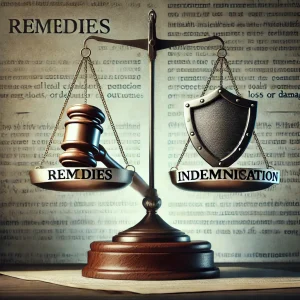Before signing a contract one issue to consider is how any disputes arising out of the contract will be resolved. Generally, such disputes are resolved by mediation, arbitration, or litigation.
Mediation is a non-binding process in which a neutral mediator helps the parties reach a mutually agreeable resolution. Most mediation clauses provide that the parties will share the costs of mediation equally. The contract should also specify how a mediator will be selected if the parties are unable to agree on a mediator. The advantages of mediation are that it is relatively inexpensive, it may lead to a quick resolution, and it sometimes helps preserve good relations between the parties so they can do business together in the future.
In arbitration a neutral arbiter acts like a judge; the arbiter may hear testimony, review evidence, and enter binding rulings. Once an arbiter makes a final award, the prevailing party may file that award in the District Court and convert it to a judgment. Arbitration sometimes leads to a resolution sooner than a lawsuit would. Another advantage of arbitration may be the opportunity to select an arbiter who has specialized knowledge. For instance, in a construction dispute, the parties might choose an arbiter with experience in construction law. There may be disadvantages to arbitration.
First, arbitration may be as expensive as litigation because most arbiters charge $250-$350 per hour. Second, the right to engage in discovery (take depositions and issue subpoenas) may be quite limited. Third, unless the contract is drafted properly the parties may end up with an arbiter with little expertise in the relevant area of law. Fourth, it is virtually impossible to seek a review of an arbiter’s decision; under Colorado law, a court may not overturn an arbiter’s decision merely because the arbiter did not properly apply the law to the facts of the case.
Litigation, of course, is the filing of a lawsuit. Litigation is expensive, but it may offer several advantages. First, litigation is governed by established rules of law, procedure, and evidence. Knowing these rules ahead of time helps the attorneys for the litigants evaluate the strengths and weaknesses of their respective cases. Second, litigation allows a party to engage in discovery that may be necessary to find relevant evidence and/or to obtain information from non-parties that do not want to become involved. Third, litigants may opt for a jury trial, and there may be cases in which a jury trial is advantageous. Finally, a party that wishes to may appeal the trial court’s decisions on matters of law to a higher court.
Mediation and litigation are not mutually exclusive. We often draft contracts that require the parties to participate in mediation, but that allow any party to file suit if mediation is not successful.


